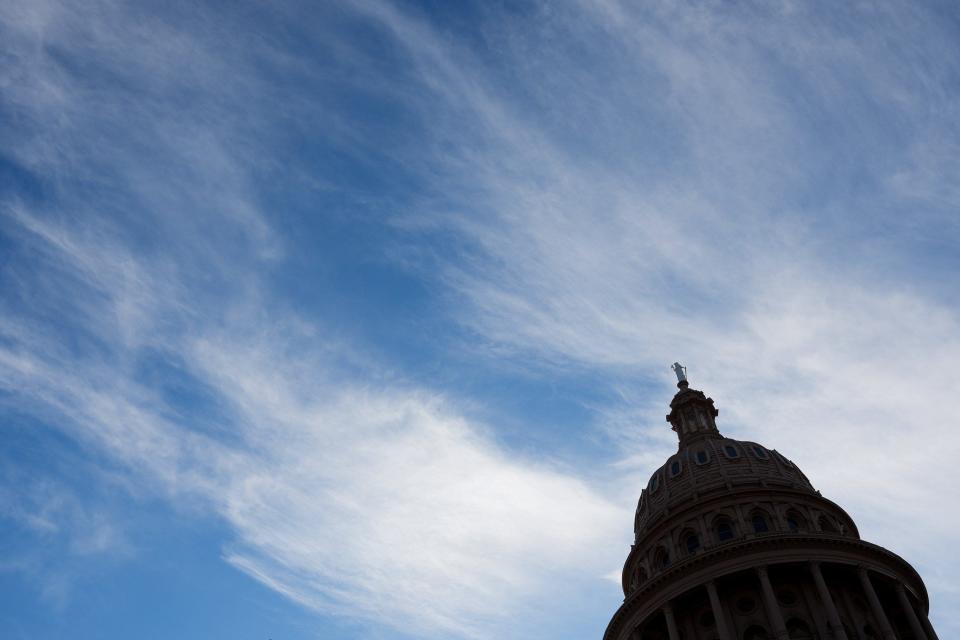Opinion: How the GOP seeks to price out emerging parties
In a 2022 Gallup poll, more than half of Americans indicated dissatisfaction with the legacy political parties in power and believed a viable alternative is needed. It comes as no surprise then to learn that the Texas GOP is doing everything in its power to stifle emerging party growth during the current legislative session. There are at least five bills filed that aim to end or price out emerging parties and their candidates – even at the expense of Texas taxpayers.
Perhaps the most egregious of these bills is SB 1705, authored by Senator Mayes Middleton (District 11 - Galveston) and now co-sponsored by Senator Charles Schwertner (District 5 - Georgetown). SB 1705 aims to force political parties who achieve at least 2% of the vote in a statewide race to hold primaries, moving the threshold down from the current 20% (specific to votes for governor). The bill looks fairly harmless at a glance – almost all Texas political parties would be “primary parties” just like the Republicans and Democrats. Even Steven, right?
Tucked away in the small print of this bill is a big price tag – an $18 million fiscal note by conservative estimates. At present, emerging parties like the Libertarians and Greens are what are known in Texas as “convention parties.” These parties are not on ballots during primaries, but rather hold conventions to nominate their candidates - at zero cost to Texas taxpayers. Now though, Senator Middleton seeks to dictate how these private political parties do business, forcing them to hold primaries like the old parties at an estimated additional cost of $9 million per election, per party. This on top of the $10 million the Secretary of State says it costs to run each party’s primaries and runoffs every two years as it is. That’s per election, folks; for those doing the math, this bill would make election costs increase from about $20 million to about $40 million. It should also be pointed out that primaries typically see low turnout, with less than 25% of registered voters casting ballots. In other words, we’re looking at nearly doubling the cost for a process that more than 75% of Texan voters don’t even bother with.
In his 1951 publication “A Model on Direct Primary Election System,” Dr. Joseph P. Harris, a political science professor at UC Berkeley and the nation's leading expert on election administration from the late 1920s to the early 1960s, recommended that states only give primaries to parties that get at least 10% of the vote. He suggested that primaries for emerging parties are a waste of taxpayer funds. In other words, Texas currently has an ideal system with its two-tier system of qualified parties.

This bill is not only costly, but it’s unnecessary – and flies in the face of the “fiscal responsibility” the Texas GOP touts during election season. Bills like SB 1705 seek to achieve only one thing this legislative session: to further solidify GOP political power in Texas by neutralizing or eliminating political parties who drive competition.
Representative Dustin Burrows (District 83 - Lubbock) infamously tweeted last year that, “the 2020 failure to knock Libertarians off the ballot was a dereliction of duty.” Burrows now serves on the House Elections Committee, which will be hearing SB 1705 soon.
This is what emerging parties are up against in Texas, and why it’s so critical that voters contact the House Elections Committee to tell them to vote against SB 1705. This new law would affect not only the emerging parties themselves, but also the nearly 4 million Independent voters in Texas who want to see more options on their ballots.
Cowart is a project manager for a software company and a freelance journalist with a focus on ballot access and election law. She lives in Conroe with her family.
This article originally appeared on Austin American-Statesman: Opinion: How the GOP seeks to price out emerging parties

